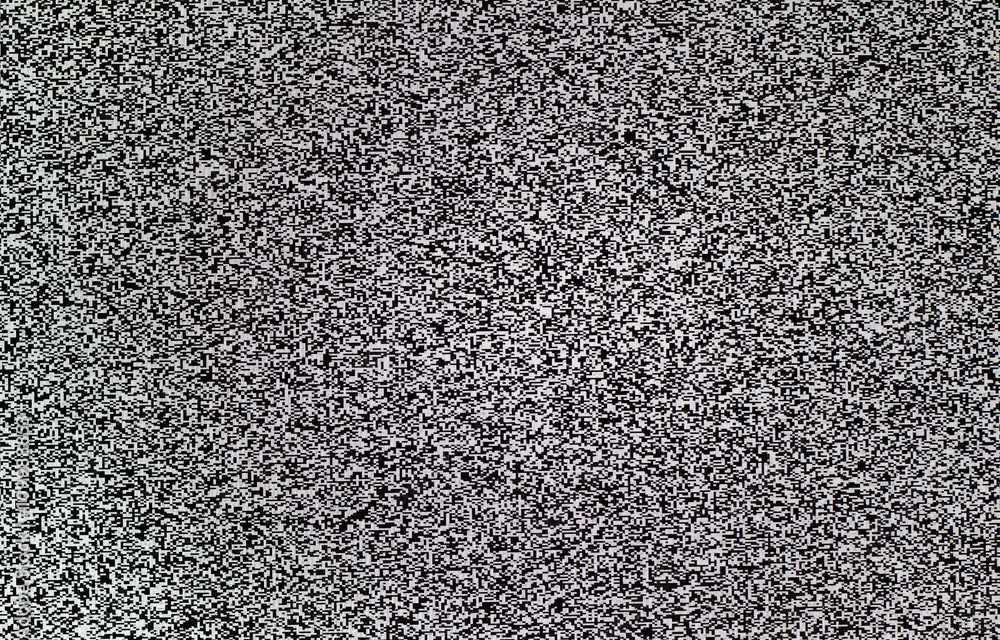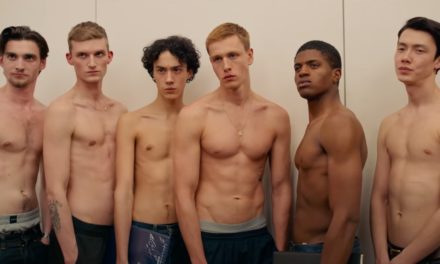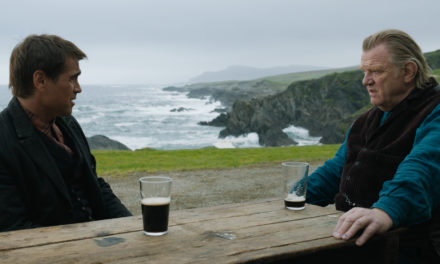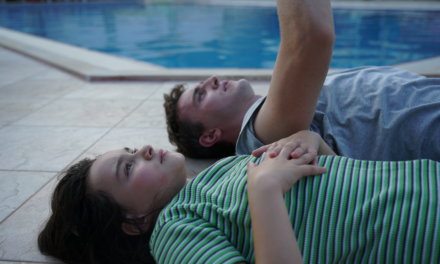White Noise is a mess, but it’s an admirable mess. The 1985 novel by Don DeLillo has been widely regarded as unadaptable, and when watching the film it quickly becomes self-evident why. You can see what initially drew Baumbach to the text, its tilted family dynamics, witty overlapping exchanges and reverent upper middle class satire all fitting his sensibilities as a filmmaker precisely. However, once these pieces are translated to the bombastic scale DeLillo’s work calls for it seems to falter under its own weight.
‘White Noise’ is about spectacle, and our inbuilt ways of dealing with it whether it be through rationalisation, sedation or mass hysteria. One of the most illuminating, and perhaps best, segments of the film revolves around the family having to vacate their suburban home due to an airborne toxic event of unknown origin. Whilst camping out with other survivors they are awoken in a panic and forced to quickly escape further into the wilderness. We see everyone go from a makeshift community to a pandemoniac heard without anyone knowing why or what exactly has happened. It is about how we function as a hysteric whole; it’s infectious. On the other side of this is an urge to blindly follow those in power who act as the harbingers of spectacle. Whether it be the dissonant voice from a tannoy telling people to evacuate their homes, a parent reassuring their child or Adam Driver’s fascination with fascism, he himself replicating its spectacle through the unbeknownst detachment of academia.
These themes and ideas are sound, because I’m sure the book is good, but is never indicative to a homogeneous filmic experience. This is largely due to the apparatus of filmmaking on display being incredibly opaque. This is encapsulated by a moment in which a truck collides with a train resulting in a cgi explosion that sort of defeats the point its trying to make, we are suppose to be drawn to spectacle but the moment itself is so false looking and unimpressive it illicit’s nothing. Even the massive supermarket set, though impressive, is never used in a particularly interesting way, left feeling like an image we have seen many times over even within Baumbach’s own canon; being used much more arrestingly in the final moments of Fantastic Mister Fox.
“the performances Baumbach is able to sculpt wildly varies and the film tonally suffers as a result”
Baumbach mentions that a large challenge was the heightened dialogue of the book, ‘existing on a plain that isn’t quite our reality’ and ‘isn’t how anyone talks but is exactly how everyone talks at the same time’. This leads to much of the trouble as the performances Baumbach is able to sculpt wildly varies and the film tonally suffers as a result. It’s a rare misstep in the casting of the usually superb Greta Gerwig. The pervading feeling from her performance is that of over thinking the text you sense she feels great affection towards, and once certain aspects of her character are revealed I was left even more confused by certain decisions made within the role. This isn’t helped by the fact that Adam Driver’s performance, though quite remarkable, is completely out on sync with his costars. Driver plays with the weighty pros with this effortlessly covert naturalism thats is so so funny, the entire time I was thinking how rarely he is afforded comedic material yet succeeds so greatly every time. The bit players are also fantastic, something Baumbach has always had a great eye in casting (William Baldwin in Squid and the Whale comes to mind). Its great to be reminded how brilliant Don Cheadle can be when given interesting material. As is Jodie Turner-Smith, who after seeing last years ‘After Yang’ as well as 2019’s ‘Queen and Slim’ is on something of a hot streak and looks to be an exciting rising British talent. A small part as a doctors played by Francis Jue also deserves special recognition, I don’t know how they found him but he gives a performance straight out of a John Waters film, and I mean that as the highest compliment.
Baumbach’s work most greatly succeeds through precise minute human observations, doing so to skilfully evade the melodramatic trappings of the courtroom drama in his previous outing ‘Marriage Story’. Sadly these smaller moments are far and few between in ‘White Noise’ and instead the whole film acts as a knowing wink in which dissonance seems to be the pervading result. Throughout the film I couldn’t help but be reminded of PTA’s attempt at adapting Pynchon with 2013’s ‘Inherent Vice’. The task of adapting such a cerebral and beloved text is admirable and you sense Baumbach’s impulse to encapsulate the pandemic through these means whilst simultaneously trying to push himself creatively is commendable. But, unfortunately, it ends up feeling more like your annoying friend recommending you a book that you’ll never get round to reading.





